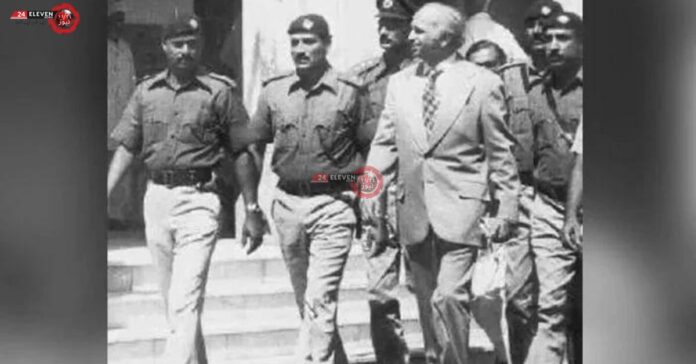A decision in the long-standing case surrounding the execution of former Pakistani Prime Minister Zulfikar Ali Bhutto hangs in the balance as the Supreme Court reserved its verdict following a series of dramatic hearings.
The case revolves around a presidential reference filed in 2011 by then-president Asif Ali Zardari, seeking a review of Bhutto’s 1979 death sentence for murder. Bhutto’s supporters have long claimed the trial was politically motivated and lacked due process, while opponents argue that reopening the case would set a dangerous precedent.
The court, led by Chief Justice Qazi Faez Isa, heard arguments from various parties. Raza Rabbani, representing Bhutto’s family, argued that the trial was not transparent due to the martial law in place at the time. He emphasized the lack of due process and Bhutto’s absence from the initial complaints against him.
Opposing the reference, Ahmed Raza Kasuri, son of the alleged murder victim, argued that the case was already settled and reopening it would create a legal “floodgate” for similar challenges. He further stressed the absence of any legal basis for a second review.
The government, through Additional Attorney General Chaudhry Aamir Reman, acknowledged potential violations and possible government interference during the original trial, suggesting the need for re-investigation.
Following the arguments, Chief Justice Isa announced that the court would reserve its verdict, aiming to release a “short opinion” after consultation among the judges. However, an exact timeframe for the announcement remains unknown.
This highly-charged case has reignited debates about justice, political interference in the judiciary, and the legacy of Zulfikar Ali Bhutto. The Supreme Court’s verdict will be closely watched by all parties involved and could have significant implications for Pakistan’s legal and political landscape.


